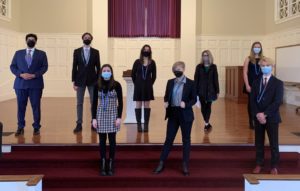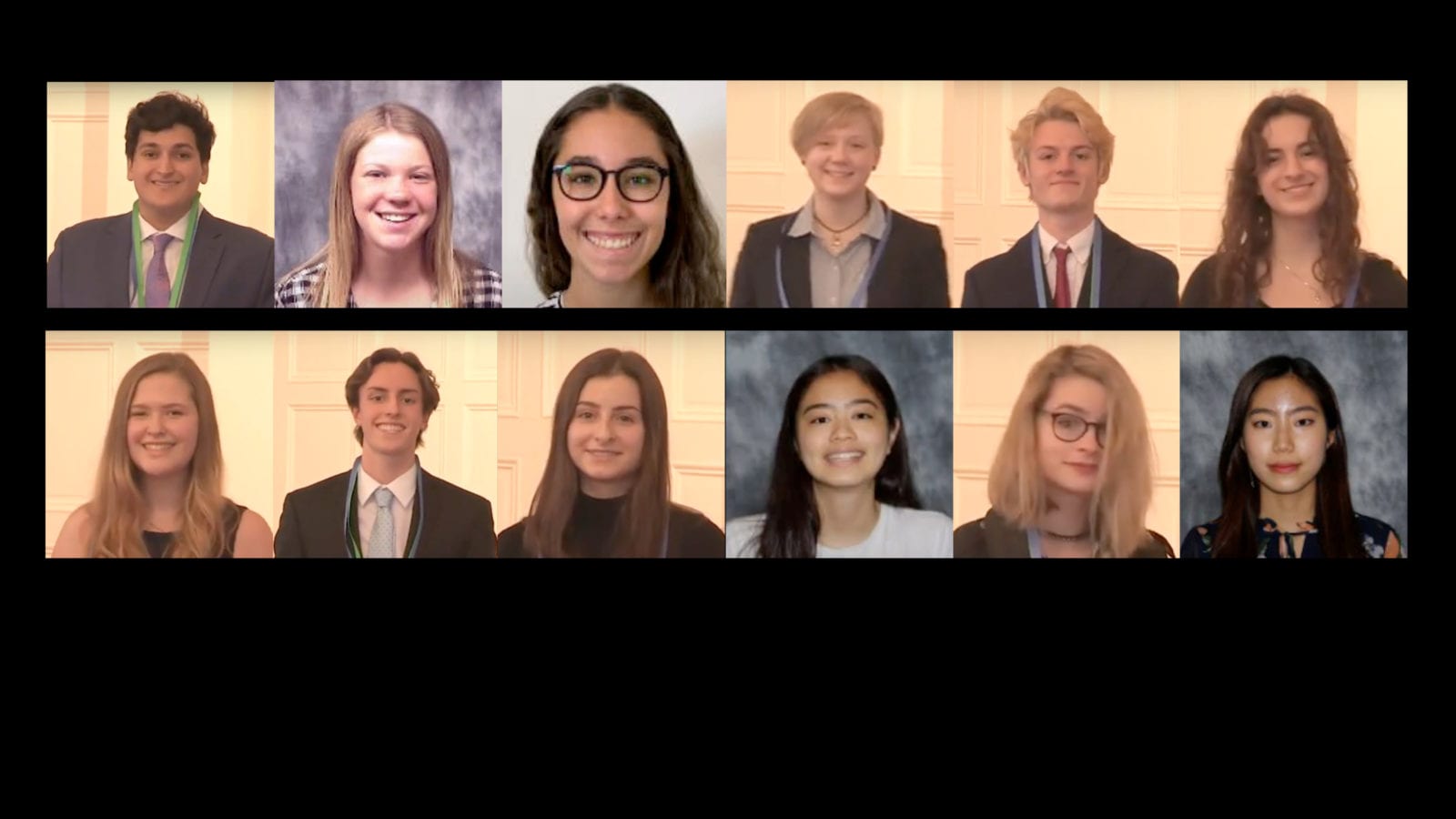Class of 2001 alumnus Ronald Chan delivered the keynote address at Williston Northampton School’s virtual 2021 Cum Laude Society induction ceremony on January 26, when the school bestowed one of its highest academic honors on 12 members of the senior class. (See video of the entire ceremony and the speaker only.)
Head of School Robert W. Hill III opened the program, saying, “The ceremony unfolding today honors a select few students, those who have consistently combined a devotion to learning with timeless values of intellectual curiosity and integrity.”

Cum Laude Society Secretary and history and global studies teacher Tom Johnson introduced the 12 senior scholars, four of whom are studying remotely and were not present for the ceremony:
Anfisa Bogdanenko
Shen-Yi “Erin” Chai
Liam E. Coughlin
Lauren Goldinger
Sophie Gontow Calderon
Jonathan King
Molly Kinstle
Na Kyung Lee
Ruby M. McElhone Yates
Anna Richardson
Abigail E. Schulkind
Nikhil Sierros
Beatrice Cody, president on the Williston Cum Laude chapter, offered the students a warm welcome into the Cum Laude Society, which she described as a fellowship of scholars, and said that this group will no doubt contribute to finding solutions to the difficult problems our world now faces.
Hill then introduced our keynote speaker. He recalled meeting Ronald Chan on a trip to Hong Kong. “My first impression of Ronald Chan…was something between awe and fascination,” he said. “I was awed by the position he had in the government, and fascinated by the fact that a person his age had achieved so much.”
Chan holds two degrees from Stanford University and recently received a Master’s of Public Administration from Harvard’s Kennedy School. He has had more than a decade of experience in public service and current affairs.
He was elected as a district council member in 2007 and in 2010, the Hong Kong government appointed him special assistant to the chief executive. In that capacity, he served as the government’s public communications liaison with legislators, journalists, and the community. In 2012, Chan became the political assistant to the secretary for Constitutional and Mainland Affairs. He was promoted three years later to the position of undersecretary for Constitutional and Mainland Affairs, with a portfolio that included public elections and human rights protection. He played a major role in the government’s two-year endeavor to introduce universal suffrage.
Currently, Chan is executive manager at the Hong Kong Jockey Club, where he is responsible for the club’s business development and stakeholder engagement with mainland China.
In his remarks, Chan congratulated the awardees. “Your hard work has paid off, and you have every reason to be proud of your accomplishments,” he told them.
As a 16-year-old, Chan said, he was “extremely curious to find out what was on the other side of the globe.” This motivated him to attend Williston, a 30-hour journey from his home. He boarded here for two years—an experience he remembers fondly as a transformational time. “Because of the trips to Easthampton and the many others that took me to different parts of America, I got to greatly appreciate the immense richness of the world we live in.”
He offered appreciation for the experiences studying abroad conferred upon him, saying, “I’m convinced that being broad-minded and creating a global community is a worthwhile cause.”
“You will go on to become leaders of your respective industries and communities,” he continued, “so your willingness to support the building of networks that cut across cultures and geographical boundaries will have a direct, positive, and lasting impact on not only yourself but also many of those around you.”
He offered students three suggestions:
- Resist the temptation to characterize someone you don’t know or pigeonhole a foreign place before you have a chance to find out more. Notice your own biases.
- Make a genuine effort to see and experience the world, either directly or through somebody else (post-pandemic, of course).
- Try to introduce some global dimensions to your work in the future.
“These cross-cultural or cross-boundary interactions will often spark new ideas and insights that will pleasantly surprise you.”
Read his full speech here.

